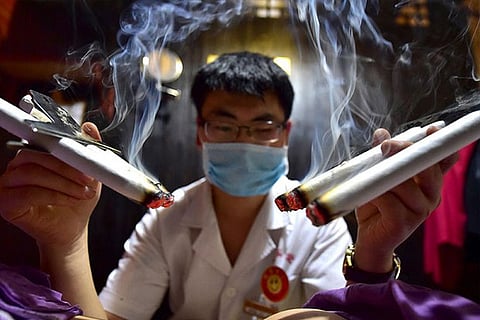

London
While the western world looks at embracing alternative forms of treatment, activists in China are protesting the use of ancient and traditional medicine, which hospitals are obliged to offer to patients on an equal footing with modern medical care.
Over a number of years, Chinese researcher Qiaoyan Zhu, who has been affiliated with the University of Copenhagen's Department of Communication, has collected data on the many thousand science activists in China through observations in Internet forums, on social media and during physical meetings.
She has also interviewed hundreds of activists.
"Many of them are protesting individually by writing directly to family, friends and colleagues who have been treated with -- and in some cases taken ill from -- Traditional Chinese Medicine.
"Some have also hung posters in hospitals and other official institutions to draw attention to the dangers of traditional treatments. But most of the activism takes place online, on social media and blogs," Zhu said in an article published in the journal Public Understanding of Science.
Together with Professor Maja Horst, Zhu analysed data on activists and their protests.
"The activists are better educated and wealthier than the average Chinese population, and a large majority of them keep up-to-date with scientific developments," added Horst.
In addition to smaller groups and individual activists that have profiles on social media, larger online groups are also being formed, in some cases gaining a high degree of visibility.
"The card game with 52 criticisms about Traditional Chinese Medicine that a group of activists produced in 37,000 copies and distributed to family, friends and local poker clubs is a good example. Poker is a highly popular pastime in rural China so the critical deck of cards is a creative way of reaching a large audience," Horst noted.
Horst and Zhu also found examples of more direct action methods, where local activist groups contact school authorities to complain that traditional Chinese medicine is part of the syllabus in schools., or that activists help patients refuse treatment if they are offered treatment with Traditional Chinese Medicine.
"We have already seen marches for science in the US and Europe so it is not unlikely we will begin to see more activism in favour of science and evidence-based medicine in our part of the world as well," the researchers wrote.
Visit news.dtnext.in to explore our interactive epaper!
Download the DT Next app for more exciting features!
Click here for iOS
Click here for Android